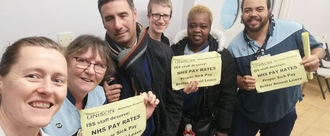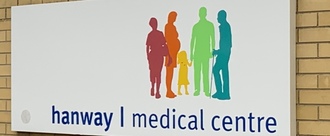-
Provision of public toiletsThe bill was an answer to the Public Health England report ‘Taking the P**s’ which found that the lack of public toilets was a serious health issue. In light of the present Corona virus emergency, a large union has highlighted the fact that there are insufficient public toilets where the public could wash their hands.106 of 200 SignaturesCreated by Ian Winstanley
-
Keep out of hours open in the valeThis is a lifeline in every sense. Too many people will die as either have to travel too far or not be seen at all. There is only 1 road in and out to rah from vale/dumbarton. Takes too long to get other hospitals. Vale of leven is on our doorsteps4,336 of 5,000 SignaturesCreated by Mhairi Fraser
-
Reverse the closure of Inverclyde’s Out of Hours GP ServiceThe GP out of hours service in Inverclyde has been under pressure for some time with regular closures. This means that patients routinely have to travel to Paisley or Glasgow for treatment overnight. This puts patients at risk and for many in Inverclyde means a journey of over 20 miles just to see a GP. These changes come amid warnings of further service cuts at Inverclyde Royal Hospital and many trauma services also being moved to Paisley and Glasgow. Inverclyde needs a fully functioning health service and, at the very least, that means a full GP service.6,065 of 7,000 SignaturesCreated by Martin McCluskey

-
Declare a Public Health Emergency on SuicideIn September 2019 the Chief Medical Officer Dr Michael McBride stated that there is no greater public health challenge than suicide. Sadly, in these first weeks of 2020, his statement has proven all too accurate, with the tragic loss of yet more precious lives by suicide. More families have been plunged into unbearable grief and pain and communities have been left reeling, struggling to make sense of it all. Suicide is something everybody hopes never comes to their door, but the reality as we’ve seen is that it can affect any family. Yet we know that suicide is preventable, is not inevitable and can never be the answer. Mental illness is a risk factor in relation to suicide but mental illness does not necessarily lead to suicidal behaviour. Access to the right support at the right time can prevent suicide and right across our communities there are numerous excellent suicide prevention and crisis intervention services working tirelessly to help keep people safe and to reduce the risk of suicide. More people have died by suicide since the signing of the Belfast/Good Friday Agreement than died as a direct result of the conflict. Our rates of suicide are the highest across these islands, something that is receiving international attention for all the wrong reasons. Behind the statistic of 307 deaths by suicide in 2018 are individuals who were much loved and continue to be mourned by their loved ones. While the suicide prevention strategy Protect Life 2 contains many good initiatives that must be fully resourced and implemented, it is clear that something more, and of a different measure, is now needed to tackle this crisis. It is regrettable that the New Decade New Approach document does not specifically address the issue of suicide. Alarm bells are ringing in all communities. The current suicide reduction target of 10% over 5 years, equating to roughly 6 deaths a year being prevented, is wholly inadequate. Similarly, the funding allocation of £10.35 million - a miniscule 0.2% of the overall health budget - is a fraction of what’s required. Access to services is piece-meal and waiting times for counselling vary greatly across Trusts, with people being forced to wait several months for an initial appointment. Going forward, it is vital for you to ensure that suicide prevention is prioritised within the upcoming Programme for Government, not only by your own department, but around the Executive table. Given the concentration of deaths by suicide in deprived communities, commitments in New Decade, New Approach, designed to address poverty and inequality, must also be recognised as suicide prevention measures and resourced accordingly.5,282 of 6,000 SignaturesCreated by Niall Bakewell
-
Ban Dangerous Pesticides in Haslemere and surrounding villagesThe use of glyphosates has already been banned or restricted in 8 countries. It is not acceptable that ourselves, our children and the animals we share our community with are being routinely exposed to these chemicals whether we like it or not. This is a matter of great importance for those of us who care about each other's health and the health of our children, our cats, our dogs and all the flora and fauna of this city, of course including our beloved bees. Frensham Parish Council has successfully banned glyphosate and there have been no issues with excessive weeds! Let’s also help to bring our biodiversity back! Surrey County council (Highways) contracts Waverley Borough Council to spray glyphosate on our street verges, round houses, schools, playing fields and churches. Therefore we are concerned about children exposed to this proven carcinogenic herbicide. We at the Haslemere Transition group would welcome unsprayed wildflower verges as an alternative; safe havens for pollinators and insects as well as bee friendly planting in public spaces. If you don't live in this area, click here to sign or start the campaign for your city: https://secure.38degrees.org.uk/start-a-pesticide-campaign144 of 200 SignaturesCreated by Kathy Higham
-
Stop preventable sight loss for NHS patients because of delays to treatmentA mother of three has lost her sight because of delays to appointments and a lack of staff which failed to treat her glaucoma. Glaucoma is an eye condition caused by the optic nerve being damaged. An investigation into the problem has predicted that up to 22 people go blind each month because of glaucoma not being treated early enough. We can't stand by whilst people are treated this way. Our NHS should be there for us when we need it most, not pushed to the brink because of staff shortages and more. During the election the Conservative party made big promises for our NHS about specialist staff and reducing NHS waiting times. Now it’s time for the government to move fast to act on these commitments - and stop preventable sight loss as a matter of urgency. Will you sign the petition to the Health Secretary now to up the pressure? Thousands of us speaking out today could force him to act.1,607 of 2,000 Signatures
-
Give current 3rd year students the NHS nursing grantThis is the only student nursing cohort not to receive any form of a bursary in England The cohort before them were the last to receive a bursary. Some of these students deferred starting their training for many reasons before the end of the bursary was announced. The cohort immediately after them will benefit from the new grant. This is very unfair for this cohort and many have suffered huge financial hardship for the career they love, a career that will protect us all in our hour of need. Let's help them in theirs.877 of 1,000 SignaturesCreated by Joanne Fisher
-
Justice for kidney patientsHaving had this illness for over 20 years,I feel medications should be free, we never asked to be ill with this dreadful illness, and it's not right we have to pay for them where other illnesses like ms, epilepsy, diabetics etc have free drugs, kidney disease is a terminal illness eith no cure only treatment options in the form of medications, diaylis or possible transplant, we deal enough with the stress of the unknown let alone fight for something that should be free, also I'd like chronic kidney disease to be more known and have a benefit in place for the patients with this illness, and not one that's based on pip where we have to fit into a category of needed help, most patients like me dnt need help but due to diaylis and being tired and can't work but can't get help I want this changing to be fair for all, why should some get help and not others we are all suffering in are own way.133 of 200 SignaturesCreated by Teresa King
-
Opt out, not in, of termly wellbeing check-ups!In the last five years, the number of students seeking help has risen 106% at Bristol University. This is double the average across the UK! Although steps have been made, this is not enough!!! Since 2016, 11 student have taken their own lives and yet Bristol students still have the longest wait time for mental health services across the nation. Surely we deserve better. After all, we are all paying for this, one way or another...110 of 200 SignaturesCreated by Maia Miller-Lewis
-
ISS staff at Homerton hospital deserve a living wage!Multinational company ISS took over the contract at the Homerton to provide domestic, catering, portering and security services. They committed verbally at the time (01/10/15) to paying staff the London Living Wage as part of their bid to win the work. Staff who were working for the previous company transferred to ISS and at the time were paid the same as NHS staff. They also retained their previous terms and conditions which closely resembled those of NHS staff. Since this time, wages have fallen relative to the London Living Wage and to NHS staff. Both groups earn less than the London Living Wage of £10.75 per hour. ISS must honour its contract with Homerton Hospital and pay its staff the London Living Wage. The London Living Wage is based on what people need to live on. No-one should be below this level! Catering, portering, domestic and security staff are essential to the safe running of the hospital and should be treated properly and paid a fair rate. In addition, staff on ISS' standard contract don’t get even get proper sick pay or a higher rate for weekend working like their colleagues who transferred from the former company. Our demands: We believe these staff are essential to the functioning of our hospital and NHS, and that: · ISS must honour its contract with Homerton Hospital by paying a minimum of the London Living Wage (LLW) to all staff, increasing it every November in line with the increase in the LLW, and backdating increases to November 2017 when staff wages first fell behind the LLW · ISS should also implement the NHS pay rise which many outsourced staff have received this year, including ISS staff in Liverpool Royal Infirmary and Liverpool Broadgreen Hospitals · The LLW and NHS rates are the absolute minimum ISS should be paying its staff; shift enhancements and unsocial hours payments are on top of the basic hourly rate, not included in it · We understand that ISS has also agreed improved terms and conditions for staff at BEIS, including improved sick pay and annual leave. We call for staff on ISS contracts to have the same terms and conditions as staff on former Medirest contracts, including getting proper sick pay and annual leave entitlements · The best value for the Homerton Hospital, and the best conditions for staff, would be for the contract to be brought back in house1,876 of 2,000 SignaturesCreated by Jordan Rivera
-
Make ARFID treatment as accessible as treatments for Anorexia and BulimiaMalnutrition causes the NHS £1 billion per annum each year as prior to 2014, this disorder was not recognised by the DSM-5. This meant sufferers have learned to live on diets unsuitable for long term and as a result are nutritionally deficient which can cause an alarming amount of problems such as diabetes, lowered cognitive function, necrosis, and even death considering eating disorders have abundant fatalities each year, as every sixty two minutes, a person dies from an eating disorder.189 of 200 SignaturesCreated by Megan Cowan
-
Save Hanway Medical PracticeHanway Medical Practice is in danger of closure. The Hanway Medical Practice has been in the heart of Buckland's community for over 50 years and serves a patient list of 14,000 people, mainly relying on its current location for a wide variety of treatments and support. We want the practice owners and the Portsmouth CCG to show they have listened to and considered every proposal to keep the doors of a much-loved, much-needed medical practice OPEN! Please help us, sign this petition and let’s show our support for keeping the Hanway Medical Practice open.830 of 1,000 SignaturesCreated by Kate Harris
Hello! We use cookies to improve your experience by providing insights into how the site is being used. Find out more.
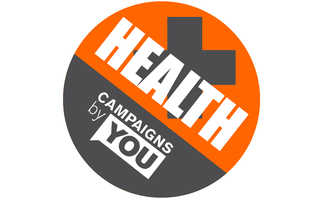.jpg20200309-19277-15f1f1a.jpg)
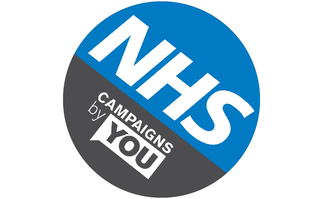.jpg20200227-32186-2ow4le.jpg)





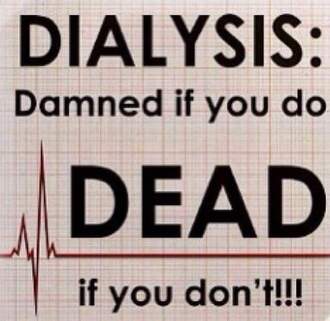
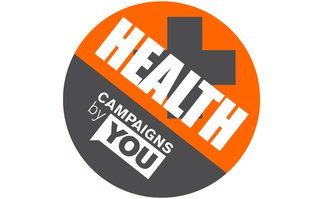.jpg20191209-4346-1vzzpqq.jpg)
